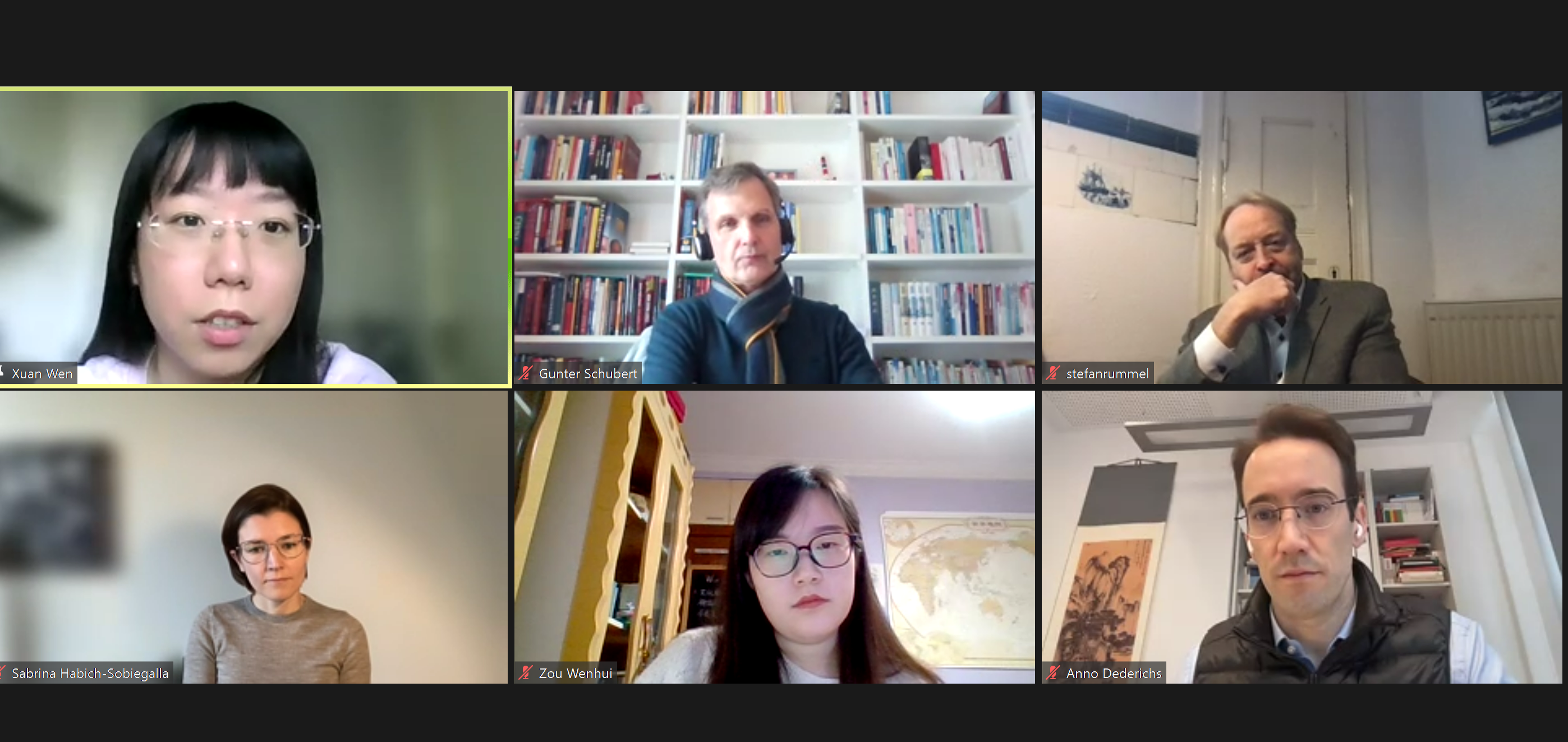
The third session of the Triple Alliance Young Scholars Workshop co-launched by Peking University (PKU), the University of Tübingen (UT) and Freie Universität Berlin (FUB) for the promotion of area studies was held on November 25, 2022.
The presentation was delivered by Wen Xuan, a PhD student from FUB, titled “How can villages become beautiful? An Analysis of Unintended Consequences during Rural Policy Implementation in China.”
Wen first gave a comprehensive introduction to the policy background characterized by “Construction of Ecological, Livable and Beautiful Villages,” which was initially promoted in 2014 by CPC, and was well-integrated into Rural Revitalization Strategy in 2018-2022. As Wen summarized, three core development goals can be extracted from the policy document: Green Agriculture, Livable Country side, and Ecological Restoration. She then put forward her preliminary research purpose, which is to understand how policy texts’ grand narratives impact local communities and to analyze the underlying drivers of unintended outcomes entailing the massive implementation of the nation-wide project.
According to Wen, research has been conducted to examine policy implementation in rural China, providing various perspectives including central-local relationships, strategic actions of local cadres, and incentive structures. However, there are still gaps that previous studies did not account for, as existing studies paid insufficient attention to the roles of other actors in implementation, such as villagers and third-party companies. Therefore, Wen decided to situate her project on villagers and third-party companies, answering research questions as “what are the unintended consequences during the policy implementation in rural China,” “how do they arise”, and “what are the implications of theses consequences.” In order to gain a better understanding of county-township-village politics and contemporary rural construction, Wen conducted a six-month participant observation in 25 villages and held interviews of the involved actors and their power relations. The preliminary findings can be summed up as follows. Urban-rural divide is still an undisputable trend in China, positioning the rural areas in a disadvantageous way and regarded not as “beautiful” as the urban areas. However, as gesture symbol, token policy implementation is the so-called improvement. The formalism of implementation has been perpetuated, in order to fulfil the tasks from the higher-ups.
Wen answered questions from the audience following the presentation.


